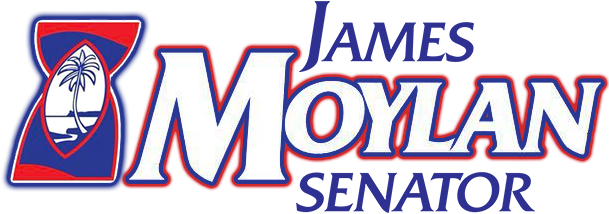Follow Law, Let Voters Decide Tax Increases
On Aug. 3, 1998, Bill 539-24 became Public Law 24-222, and essentially mandated that any increase in real property tax, liquid fuel tax, gross receipt tax (now called the Business Privilege Tax) or any locally and administered tax on Guam shall only go into effect with the approval of the voters of Guam in a referendum held during a General Election. The same rules of a referendum would also apply with general bond borrowing measures and the increases in certain fees.
The legislation was originally vetoed by the governor at the time and subsequently overridden by 18 senators on both sides of the political aisle. Bill 539-24 simply implied that, all too often, the taxpayers of Guam bear the brunt of tax increases and the repayment of bonds with little to no say in the matter.
While it is understood that tax increases and the issuance of government bonds are warranted and necessary at times, the legislation recommended empowerment and entrustment of the taxpayer to decide on such proposals.
Interestingly, on Dec. 12, 2012, Bill 431-31 became Public Law 31-255. This legislation basically revamped Title 3 of the Guam Code Annotated in relation to election laws. Just as some 14 years prior, the legislation was originally vetoed by the governor and subsequently overridden by 15 senators on both sides of the aisle.
What is important to note is that while revamping the entire election code of Guam, the one item that remained untouched and consistent was Chapter 16, which is essentially the language related to mandating voter approval of tax increases and bond borrowing measures.
I believe it’s safe to state that senators felt that this measure was too important to keep as part of Guam’s laws, otherwise they would have removed it. The opportunity was certainly there, yet the language remained. In simple summary, lawmakers felt that because taxpayers feel the brunt of tax increases and borrowing measures, they should be able to make a decision on such proposals, as is done in many states.
The question should not really be about how one feels about this law, rather it is the reality that this law exists, and thus should be followed. If enough lawmakers feel that this mandate removes their authority, then repeal this chapter of the law and let’s move on from this political circus.
However, this language has been sitting in Guam’s books for nearly two decades, and considering the many bond-borrowing measures and tax increases approved by senators during that same time period, it is obvious that the law has not been accurately followed.
At the end of the day, people expect more from elected officials and, if anything, they expect them to at least follow the law.
